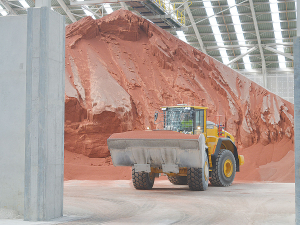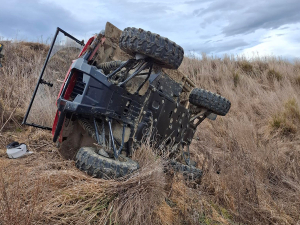Ravensdown posted an overall group profit of $95 million, and an underlying profit of $68m in the core fertiliser business, before taxation and rebate.
Chairman Bruce Wills says it's "one of our best ever results".
Total fertiliser sold was slightly up at 1.22 million tonnes, and revenue at $922m was up $210m on last year, reflecting the rising-price environment that dominated the year.
Despite the solid profit, Ravensdown is paying farmer shareholders $5/tonnes less in rebate compared to $30/tonnes paid out last year.
Chief executive Garry Diack says the volatility of the market is not going away. "And we need the capacity to capitalise on procurement pricing opportunities, and we need to continue investment in technological support to reduce New Zealand's fertiliser footprint," he says.
"The need for a capital buffer for the increasing risk a cooperative structure faces compels a conservative approach to shareholder rebate for 2022.
"Given this year's performance and next year's challenges, a shareholder rebate of $25 pert tonne has been declared," he says.
Diack noted that rapidly rising international prices makes fertiliser hard to budget for farmers.
To help them, Ravensdown says it focused on product margins and yielded a group margin percentage lower than last year.
"Our fundamental belief is that this cash is better in use on-farm than in our hands, and our margin-based pricing approach has proven this to be the case.
"Consistent with our cooperative values we have positioned the balance sheet for another challenging year in 2023 with $347m of stock in store - providing confidence to customers for spring."
Ravensdown Shipping Services proved its worth, providing a $26m boost to the group's bottom line performance.
Ballance Agri-Nutrients will pay its farmer shareholders $30/tonne in rebate this year, equating to an aggregate total of $37m returned to farmers and growers.
Chairman Duncan Coull says the Ballance board has elected to retain $56m "to future proof the cooperative as we transition to a low emissions carbon-neutral future for locally manufactured nutrients".
"Investing in reducing our manufacturing emissions, and maintaining our assets is how we can continue to provide a reliable source of nutrients for current and future generations of kiwi farmers and growers," says Coull.
Chief executive Mark Wynne says its strategy to focus on local manufacture is paying dividends.
"In Kapuni we have a favourable long-term gas supply contract.
"This enabled the supply and manufacture of competitively priced urea, about 30% of our total volume sold. In other parts of the world, the rapid energy price increases forced the closure of fertiliser factories, creating supply pressures, however our contractual arrangements have enabled some of the lowest priced urea in the world over the last six months," says Wynne. "Our long-standing and trusted relationships with our global suppliers helped to mitigate ongoing supply disruptions and the unpredictable price of raw material, produce and freight, however, by far the biggest advantage we had, was our strategy to focus on local manufacture."


















